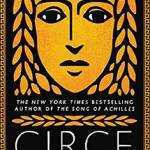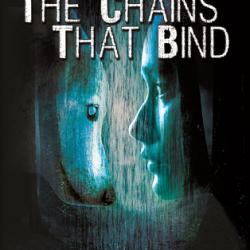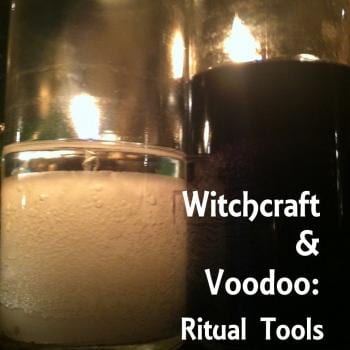The following article is the transcription of the first half of Witchcraft & Voodoo Episode 9: Ancestors, which aired on Lilith’s YouTube channel on Monday May 21st. Episode 10 will be aired on my YouTube channel on Monday, June 4.
LILITH: Hello everybody! And welcome back to the return of Witchcraft & Voodoo! Did you miss it? We missed it! I missed it so much! Yay!
SABLE: (laughter) Yeah, me too, I really missed it. I’m so glad we’re doing this again! Awesome!
LILITH: I know! I missed it so much! I’m Voodoo Priestess Lilith Dorsey, and I’m joined by my co-host, Sable Aradia; introduce yourself …
SABLE: Well, I’m Sable Aradia, and I’m a Wiccan Priestess.
LILITH: And we decided it would be nice to sit down, and have these conversations, and really talk about some of the similarities and differences between Wicca and Voodoo, as, you know, we’re both priestesses, we’ve both been doing this a long time … (laughter) and it’s a lot of fun! And tonight we’re going to talk about ancestors; which I realized when I was going back over the rest of what we had done that we hadn’t covered ancestors.
And for me, the ancestors are everything. I always say, “The Dead first, last, and always.” Because we honour the dead in almost everything that we do. We honour them from the minute we wake up with our first cup of coffee, to a lot of times, you know, the meditations we do as we’re going to sleep, the altars we’re taking care of before we go to bed. All those things have to do with the ancestors. And I think that we wouldn’t be where we were if it wasn’t for the ancestors. So you know, for us, especially a tradition of people that were oppressed and oppressed and oppressed; and slavery, and Middle Passage, and you know, all the things that we have going on — our ancestors got us to this point. And we need to thank them over that, and we need to honour them for that. And we need to realize that they had strengths, and things to teach us, even if, you know, we didn’t want to listen when we were little. (laughter) So what do you think?
SABLE: Well, that’s really cool! And, you know, I totally see that. Um … you know, maybe that’s the African influence too. Right? Because, you know … And ancestors are so important to a lot of different African cultures, so that makes perfect sense. Oddly, Wicca isn’t quite as focused on that. This is one thing where we have a strong difference. And it’s not like the ancestors aren’t important to witches. It’s just that we have … specific things that we do, and specific times that we honour the ancestors. It’s not part of our everyday routine. And I guess that probably comes from, um … white Christian influence, really, which tends to compartmentalize the dead. And I find this a contradiction in theology, because Wicca is very much about the balance between life and death, and the fact that death is a part of life, and that cycles are integral. And we’re all … we believe in reincarnation. We believe that … well, okay, most of us believe in reincarnation. The original Wiccans believed in reincarnation. I can’t say all witches and Wiccans do. But a lot of us do. And we believe, you know, we’re going to come back. We’re going to try this again, right?
So … um … there’s two main ways in which we honour the ancestors, and the first is Samhain, which, for those who don’t know, is Halloween, or May the first, if you’re in the Southern Hemisphere. And it’s specifically believed to be a time when the Veil between the worlds is thin. So that means that ancestors and Otherworldly beings are more able to reach us, if they have messages for us. So our Samhain celebrations are very focused on that. And we give them our undivided attention at that time. Everything that happens around Samhain …
Either, you know, people might do an Underworld Journey, where the idea is to communicate with your loved ones who have gone before, and your ancestors, and you know, to see if they have messages for you, or resolve unresolved issues, or whatever it is. And … or, it might be that we do something called a Dumb Supper, Which is where we invite our ancestors or passed-on loved ones to join us at the table. We provide a plate for them, and offer food, right, and some of us will share our stories about people who mattered to us in our lives before we sit down to eat. And we’ll do it in complete silence. And the idea is that in the silence, you can hear the dead speak. So .. and that’s something I’ve had some really powerful experiences with. I was able to communicate with my grandfathers that I had never met in my actual life that way. And I got the strong sensation that they approved of me. So that was (laugh) kinda fun, right?
LILITH: (laughter)
SABLE: ‘Cause, you know … And, uh … Okay, so the other way in which we honour the ancestors is we’re pretty focused on honouring ancestors of the Craft. People who come from — if we’re part of an initiatory tradition, for example, we will talk about, you know … Old Dorothy Clutterbuck, right? And the “Old” means that they’re a beloved ancestor who’s believe to continue to guide and aid witches in that line of descent, or that look to them for inspiration. It’s become a tradition of the Church of All Worlds, which isn’t Wiccan but is Pagan, to read a roll of people in the Craft who have died in the past year, and to, you know, to give them honour and acknowledgement. And my coven and tradition have incorporated that as part of our practice too. So this is … These are the two big things that we do.
LILITH: I just wanna mention, since you just mentioned, you know, CAW, it’s the anniversary of Morning Glory’s death. And uh, you know …
SABLE: Oh, it is, isn’t it?
LILITH: I loved her dearly. You know, I had the opportunity to, you know, not necessarily the opportunity to do ritual with her, but to speak with her, and hang out with her, and really get to know her, and she was a wonderful woman. So, just — all props to Morning Glory up there! (laugh)
SABLE: Absolutely! I never- I never had the chance to meet her.
LILITH: Oh, she was great.
SABLE: I uh … I’ve met and spoken with on two different occasions — he was on my podcast — Oberon. Oberon Zell.
LILITH: Oh nice!
SABLE: I can see the influence that she’s had; through him, and through her own work as well. Right? I mean, it’s from her we get the term “polyamourous” —
LILITH: Yep.
SABLE: – I am a polyamourous person, so I — that’s important to me. Right? So, um, yeah … So it’s fortuitous! What a – what a good choice of topic today, Lilith!
LILITH: (laugh) Yeah, I know … I mean, I’m always thinking about the ancestors. It’s funny because I’m also thinking a lot lately about foremothers. You know, because I’m working on a class about that, you know; and I think in a lot of ways Morning Glory really was a foremother for, you know, a lot of us in the Pagan movement. You know, and things like that, and also in this melding, you know, of feminism and witchcraft. Not necessarily in the way we think of it today, but being a pioneer in what she did, and what she stood for, and how she really spoke out.
And it’s funny; I’m listening to you say those things that you do, and we do all those things! We do a Dumb Supper … (laugh)
SABLE: Awesome!
LILITH: And we do something that … before we do any readings, before we leave any offerings, you know, in Ifa, or Santeria, or Haitian Voudou, or New Orleans style Voodoo, we do a litany of – of all of our line of ancestors, going back as far as we know. We call them. You know, most often they’re called the anhi-baz, which stands for “thank you.” So basically, it’s just a list of thank yous of everybody who brought us to where we are today. You know? And as part of the training for my house, I have my godkids do a prayer with their coffee every morning to all their ancestors that are remembered. You know? So for us, like I said, it’s we start out that way, with our thank yous to all of our ancestors.
And I think it’s really just a beautiful way of sort of repositioning yourself in the cosmic scheme of things. You know? Because when you think about all of that, you know, I think about my grandmothers. I had one who came here, she didn’t speak any English! The only thing she knew how to say was “Me first!” Which I love! (laugh)
SABLE: (laugh)
LILITH: (laughing) Me first, me first!
SABLE: (laughing) That is awesome!
LILITH: Yeah, yeah, so … But, you know, I think about all these women and men that got us to where we are today, and it’s really important, you know? And for us, we do — There are some things that we do that I think are unique. I’m all about the props today. So one of the things we do is we make little soul jars for our ancestors.
SABLE: Ooh!
LILITH: This has dirt from the cemetery; also, different herbs that go along with the different lwa and orisha that honour the dead. You know, and we have this on our ancestor altar, and we make that, in my house, as part of a way that we can — you know, put those things together. So that way when it is Samhain, and we’re doing an extra big thing for the Barons and the Ghede; because you know, in Haitian Voudou, Samhain is our ceremony for the Barons, who are the named dead, and the Ghede, which are the unnamed dead; and you know, how they help us. So we can have an actual, you know, something that was there, that represents these different ancestors, and we can feed them, and give them their coffee, and their cigarettes, and all the rest of the things. And they can join the party with us, which I think is really beautiful!
And it really joins us together as a house, you know? Before I started doing it, it was sort of hard to get a handle sometimes on people; and now that I feel like we have these things together, here on our ancestor altar in the temple, that it really helps us to connect to one another, and connect to those people that aren’t here anymore.
SABLE: That’s fantastic! You know, that’s interesting. Some of us — not all of us, but some of us — also keep an ancestor altar. I do. As a matter of fact, it’s sitting right behind the computer, at the moment, in a window ledge, that’s behind the computer and around the surrounding — so, they’re there to inspire me when I’m doing my creative work, because this is where I do all of that sort of thing. So, a lot of us will do that, right? And you know, little momentos and pictures … One of the things that I have — I love the soul jar idea, that is very cool! Um, I have a memory box, which I made up for, um, I lost a baby. Right? Um, I had a miscarriage, right, so I keep all the little things associated with that baby I never had in this memory box, which is, you know, a treasure. And I put it on my ancestor altar, and I look to it when, you know, I dunno, just when the need strikes me, I guess, when I want to connect. So that’s interesting! Maybe there — maybe there are more similarities than I thought! That’s kinda cool
And uh … foremothers, you spoke of; which is obviously also a big deal to witches in particular, and the Goddess-oriented witches especially. Right?
LILITH: Mmm hmm.
SABLE: And it’s, you know, like, it’s important. Right? Because all of our history remembers our forefathers. Right? Where it’s all “this man was this ruler …”
LILITH: Yeah.
SABLE: … and “this man, you know, led this army.” And “this man did- founded this family.” But what about the women? You know, what were they doing? Were they, you know, standing by, watching? Generally not! You know?
LILITH: (laugh)
SABLE: (laugh) So, yeah. So we give them special attention, right? We focus on that in particular. So … that’s an interesting point too.
LILITH: Yeah, yeah … you know, I think it is. I’m glad you mentioned that, about the memory box you have! You know, I have a daughter that passed, and I have a separate altar for her, you know? And I think … One of my goddaughters, you know, she became orphaned at a very young age. She hadn’t even finished high school. And I think, you know, when she talked about why she wanted to join our tradition, it was because it allowed us to have a more open connection with those who have passed, you know? Like, it helped her get through those transitions, and still have that energy in her life, you know, in both a personal and a daily way … through food … you know, her father was a chef, who cooked for Emril, you know? (laugh) So there were so many things that we did, through the cooking, through the altars, through the — you know, I mentioned before we do ritual flags, you know, for a lot of the ancestors that are in our house. She did a flag for her father that was like (laugh) crossed shotguns with his Emril laminate badge to get backstage! (laught) It was really beautiful! So, it was nice that she could incorporate all those things that were for him, and then take it out — you know, we would take it out when, you know, his widow was there, you know, the first time we debuted it; and now it’s so nice! We have a piece of him as, you know, part of the house! And we can all sort of share it, and remember him.
SABLE: That’s beautiful! I think that’s really cool!
LILITH: Yeah, it’s nice! I like it! (laugh)
SABLE: Yeah, I … I –
LILITH: It’s …
SABLE: Oh, no, go ahead! (laugh)
LILITH: (laugh) No, no! I wasn’t going to say anything! Go ahead! (laugh)
SABLE: I – I just .. uh, I think that witches are – one of the reasons why people find witchcraft, as opposed to … like, okay, if – if we were satisfied with what is offered to us in our culture, we would be Christians or atheists, right? And we’re not, so why aren’t we? One of the reasons why, I think, is because most of us are looking for that kind of connection to our history, and those who came before us, right, and cultural influences, and to see where they’ve gone wrong, and maybe to do some healing in that respect; but also where – where they were right, and where we’ve lost part of that, right? We’ve got sort of this myth like the good old days were better. And of course that’s nonsense. I don’t –
LILITH: Right.
SABLE: I don’t believe that at all, right?
LILITH: No.
SABLE: The good old days were just different, and people had their trials in their own individual ways at any given time, so you can’t say that. But maybe there are some things that we have lost. One of those things is that connection to our ancestors. To our dead. To our sick, even. Right? Because the culture that we come from tends to compartmentalize that, and keep it kind of hidden away, right, and nobody wants to admit that we’re all gonna die someday, right? But of course we are! And do we really want to think that that’s it? You know? Many of us do. There’s no reason why you have to believe in a literal God and Goddess, or a literal afterlife, in order to be a witch — there are many who don’t — but a lot of us do think that there is something else. And — so for us, that connection is really, you know, it’s a big deal. And that’s part of what also is done on Samhain; the idea that we’re opening the door. So I think that perhaps, again, maybe there are more similarities between our paths than I thought. Maybe this is one of the things that defines a Pagan faith!
LILITH: No, I think you’re right! I think – I think it does! Because I think we need to believe in things in a creative way. And I think that, you know, if anybody’s had a lot of people … close to them that have passed … it makes you see things in a different way! It makes you understand things in a different way. It really does! You know, I mean, I wish I hadn’t lost all those people, you know, that I had lost. I’ve lost quite a few people way before their time. You know? And it’s definitely given me a different outlook on things, and a different way of how I practice my spirituality. And how I understand death, and process death, and — You know I think you’re right! I think in a lot of ways, some of our ancestors, even if they weren’t necessarily actively Pagan, they had a much better understanding of it, in the sense — You know, I grew up with my grandparents, and they used to go to the cemetery all the time, and it would be, like, an outing! And you would take food, and you would sit there and have a picnic, and you’d clean up. And it was about still really remembering those people, and people don’t really do that anymore. And I think it’s a shame.
SABLE: I agree with you. I really think it’s a shame too. I think it just leads us to feel disconnected. And I think that we get … by not maintaining that connection, we get this false idea that, first of all, that we’re coming up with everything original.
LILITH: (laugh)
SABLE: … Which is nonsense. You know, like every generation thinks they invented sex, and …
LILITH: (laugh) Yeah, sure!
SABLE: … and their parents never did it that way, and you’re wrong! (laugh)
LILITH: (laugh)
SABLE: Right? And we don’t remember our history. I mean, you know, look what’s going right now! I mean, I don’t want to get too much into politics, but it seems to me that a lot of what’s going on is that people don’t have that connection, and so aren’t aware of why their ancestors handled things in the way that they did. And they don’t really … you know, they don’t know intuitively what the consequences of the some of the decisions that we’re making now can be. Because they don’t remember what they were. Um .. an example that’s, you know, a relatively minor controversy, would be this idea .. this anti-vaccine movement. Right? I think that — you know, because people are like, “Oh well, you know, I never get sick.” Well, okay, the reason why you never sick is because everybody decided to do vaccinations. If you talk to your grandparents, you would understand the horrors of polio, and then you would damn well get your kids vaccinated, because that is scary stuff! But nobody remember that, right? You know, tuberculosis was almost wiped out completely, but we lost the connection with what our ancestors had done, and with this anti-vaccine movement it’s now making a comeback! And this … you know, we’re undoing ourselves! We’re shooting ourselves in the foot by not being aware of what people before us have done! … Yeah, I guess that’s all I have to say about that, but it’s a shame.
Time signatures 00:00 to 19:46. Part 2 will be published soon.












